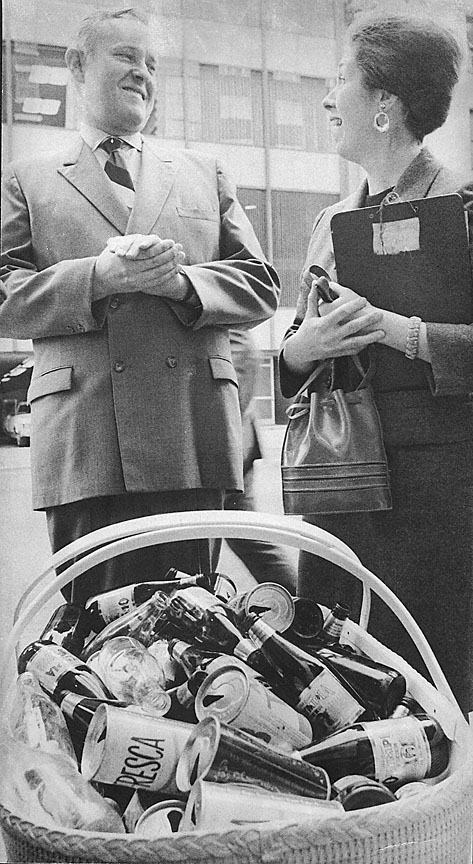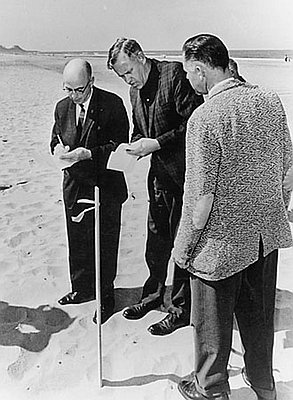This photograph shows Mrs. Joe H. Rand talking with Oregon Governor Tom McCall at a Feb. 2, 1970, demonstration by members of the Young Women’s Christian Association (YWCA) against non-returnable bottles and cans. The YWCA group gathered outside of the Portland Benson Hotel to show their support for McCall, who spoke there at a bottler’s convention and urged industry executives to use returnable containers. An Oregon Journal photographer took this photograph.
Rand was the chairwoman of a YWCA task force that supported a proposed state law banning sales of beverages in “non-returnable” bottles. At that time, the idea of “recycling” was not yet common. Supporters of the ban were primarily concerned with reducing litter, but Rand also commented on the issue of reducing wasteful consumerism. Rand told the Journal that “each year the people of this country throw away 28 billion bottles and 48 billion cans. Most of these find their way into already over-crowded dumps, but many of them are thrown onto roadsides, into rivers and left in parks. We are tired of seeing this litter, but more than that — we think that this tremendous production of largely unnecessary bottles and cans is irresponsible.”
Beverage companies opposed the ban, which became known as the Bottle Bill, because collecting and reusing containers was more costly. They also argued that only a small percentage of Oregon’s litter included bottles and cans. Despite the opposition, the Oregon State Legislature passed the Bottle Bill in July, 1971, becoming a national leader for recycling. Several other states followed with similar laws.
The law banned non-returnable bottles and cans for a number of carbonated and malt beverages, including beer, soft drinks, and mineral and soda waters. As an incentive, state legislators stipulated that consumers would recoup a five-cent deposit with each returned container.
During the 1990s, reformers failed to pass several proposed laws that would have extended the ban to newer beverage products, including bottled juices, sports drinks, and flavored teas and coffees.
Further Reading:
Brent Walth, “No Deposit, No Return: Richard Chambers, Tom McCall, and the Oregon Bottle Bill.” Oregon Historical Quarterly 95, 1994: 278-99.
Written by Kathy Tucker, © Oregon Historical Society, 2002.

